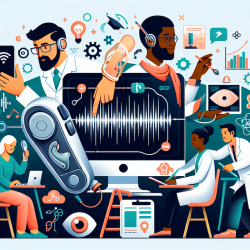Introduction
In today's rapidly evolving educational landscape, mental health professionals working in schools face unique challenges. With increasing demands on resources and a growing need for specialized support, it's essential to explore innovative tools that can enhance special education services. As a Special Education Director, I understand the importance of creating tools that empower professionals to provide the best possible care for students.
The Role of Online Therapy in Special Education
Online therapy has emerged as a valuable tool in the realm of special education. It offers a flexible and accessible platform for delivering therapy services to students with Individualized Education Programs (IEPs). By leveraging technology, schools can address therapist staffing shortages and ensure that students receive the support they need.
Online therapy platforms, like those provided by TinyEYE, offer several benefits:
- Increased accessibility for students in remote or underserved areas.
- Flexible scheduling that accommodates diverse student needs.
- Cost-effective solutions that maximize school resources.
Ensuring Legal Compliance and Quality Care
Legal compliance is a critical aspect of providing special education services. Mental health professionals must navigate a complex landscape of regulations to ensure that students' rights are protected. Online therapy platforms can assist in maintaining compliance by offering secure and confidential communication channels.
Moreover, these platforms can facilitate collaboration between therapists, educators, and parents, ensuring that all stakeholders are aligned in their efforts to support students. This collaborative approach enhances the quality of care and promotes positive outcomes for students with special needs.
Networking and Professional Development
As mental health professionals, continuous learning and networking are vital for staying informed about the latest developments in special education. Conferences, webinars, and publications provide valuable opportunities to gain insights and share best practices.
By engaging in these activities, professionals can learn about new tools and strategies that can be implemented in their schools. Networking with peers also fosters a sense of community and collaboration, which is essential for addressing common challenges and achieving shared goals.
Taking the Next Step
For mental health professionals working in schools, the journey toward enhancing special education services is ongoing. By embracing innovative tools like online therapy, ensuring legal compliance, and engaging in professional development, professionals can make a significant impact on the lives of students with special needs.
It's time to take the next step and explore how these tools can be integrated into your school's special education program. By doing so, you'll be better equipped to provide high-quality care and support to the students who need it most.
Conclusion
In conclusion, the integration of innovative tools in special education is not just a necessity but an opportunity to elevate the quality of services provided to students. Mental health professionals play a crucial role in this transformation, and by taking proactive steps, they can drive meaningful change in their schools.










